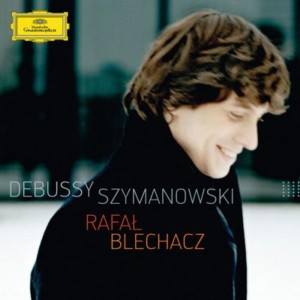This is an experimental post! I've done a few "Classical Highlights" posts for Music is Good but I don't think they fit well with the overall blog content in terms of their style. So I figured I'd try to write them as proper overviews rather than just lists of albums accompanied by quotes. This of course would make for a lot of work and produce rather lengthy posts so a better approach might be for me to be selective. The latest issues of the three UK magazines give accolades to 24 discs, so I've halved that number to make my choice. Totally subjective, of course, but as Arthur O'Shaughnessy said, "We are the taste makers / And we are the choosers of stuff". These magazines have been out for a few weeks so it's a bit late to be putting this post up on Music is Good; instead I want to stick it here and "live with it" for a while to decide that it's an okay approach.
A selective overview of some of the top-rated albums in the latest issues of Gramophone (May), BBC Music Magazine (May), and International Record Review (April).
The main focus here must be the latest disc from Rafał Blechacz, a recital of Debussy and Szymanowski (DG 477 9548); it's Gramophone's Recording of the Month and a recipient of an Outstanding from International Record Review. In the latter, Nicholas Salwey says that "Blechacz is most certainly the genuine article, possessed of an immaculate technique married with musicianship of maturity and unassuming modesty". There's more piano music from Hamish Milne (Hyperion CDA67851/2), who's long been a champion of Nikolai Medtner; here he provides a two-disc selection of shorter pieces that Gramophone's Bryce Morrison says "is surely in the running for instrumental issue of the year". And we also have a couple of piano concerto discs: David Fanning in Gramophone describes as "something truly extraordinary" a recording of Shostakovich's two concertos by Alexander Melnikov (Harmonia Mundi HMC 902104), who's also joined by Isabelle Faust in the same composer's violin sonata, and in IRR Robert Matthew-Walker praises Danny Driver's performances of a pair of concertos by the rather less well-known Erik Chisholm (Hyperion CDA67880) - "one of the most important contributions to British recorded music for some considerable time".
Three Brahms discs appear this month, two of them choral. John Eliot Gardiner's recording of the German Requiem (Soli Deo Gloria SDG706) is "a minutely considered, dramatic and, in places, aptly disturbing performance", according to David Threasher in Gramophone, while the same magazine's Marc Rochester describes Philippe Herreweghe's selection of works for choir (PHI LPH003) as "a mouth-wateringly sumptuous cake of a disc". In IRR, Nigel Simeone is impressed by Andrew Manze's new set of the four Brahms symphonies (CPO 777 720-2): "one of the most fiery, original and thought-provoking sets of the symphonies to have appeared in the digital era". Another choral selection is Disc of the Month in BBC Music Magazine: Paul McCreesh's "A Song of Farewell" (Winged Lion/Signum SIGCD281) features "music of mourning and consolation" from a variety of British composers and is, Terry Blain tells us, a "beautifully planned and executed programme". In the same magazine, a recital by soprano Marlis Petersen of Goethe settings spanning two centuries (Harmonia Mundi HMC 902094) provides "revelatory musical incarnations", according to Hilary Finch, while Jonathan Harvey's opera Wagner Dream conducted by Martyn Brabbins (Cypres CYP 5624) is, Christopher Dingle says, a "compelling triumph... Harvey's sublime music does not shy away from the disturbing when necessary, yet the overwhelming impression is of beauty and integrity".
Another release of contemporary music features all four string quartets of Sofia Gubaidulina, performed by the Stamic Quartet (Supraphon SU4078-2), which Ivan Moody in IRR says is "an essential investment for any admirer" of the composer. And finally, two releases of older music. The voices of Stile Antico have combined with the viols of Fretwork to bring us "Tune thy Musicke to thy Hart" (Harmonia Mundi HMU 807554), which according to Peter Quantrill in Gramophone brings "a carefully plotted span (over 120 years) of sacred styles into our listening rooms with rare success". A somewhat obscure fretted instrument, the lirone, features on a selection of 17th-century Italian laments from the ensemble Atalante, headed by Erin Headley (Destino Classics NI6152); IRR's Andrew O'Connor notes "Without wishing to sound snobbish, this is not a programme for the casual listener. It features music written for connoisseurs. Their successors today will find this in every way an outstanding recording".
Another release of contemporary music features all four string quartets of Sofia Gubaidulina, performed by the Stamic Quartet (Supraphon SU4078-2), which Ivan Moody in IRR says is "an essential investment for any admirer" of the composer. And finally, two releases of older music. The voices of Stile Antico have combined with the viols of Fretwork to bring us "Tune thy Musicke to thy Hart" (Harmonia Mundi HMU 807554), which according to Peter Quantrill in Gramophone brings "a carefully plotted span (over 120 years) of sacred styles into our listening rooms with rare success". A somewhat obscure fretted instrument, the lirone, features on a selection of 17th-century Italian laments from the ensemble Atalante, headed by Erin Headley (Destino Classics NI6152); IRR's Andrew O'Connor notes "Without wishing to sound snobbish, this is not a programme for the casual listener. It features music written for connoisseurs. Their successors today will find this in every way an outstanding recording".
